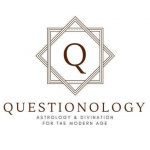 By Nikki Harper
By Nikki Harper
Staff Writer for Wake Up World
What was on your New Year resolution list as 2020 arrived? Exercise more? Eat better? Lose weight? Travel? Sure – but would it surprise you to know that for 28% of Americans, a key resolution was to ‘focus on spiritual growth’? [1] And with more and more people identifying as spiritual but not religious, the spiritual growth many of these people had in mind probably has little to do with organized religion or scripture. So, who is it that thinks of themselves as spiritual but not religious, and what does that actually mean?
[pro_ad_display_adzone id=”110028″]
If you identify as spiritual but not religious, you’ve got plenty of company. The latest available figures are from 2017 and show that 27% of American adults surveyed answered ‘no’ to being asked if they were religious, but ‘yes’ to being asked if they were spiritual [2]. This was an increase of eight percentage points from five years previously, and the increase appears to have been broad-based, occurring across genders, ages, ethnicities, educational levels and political beliefs.
A closer look at the statistics shows some interesting points [3]:
- 69% of this group said they seldom or never attend religious services
- 76% seldom or never attend prayer, scripture or religious study groups
- 62% of this group do not believe that scripture is the word of god
- And 50% say that right and wrong are determined by common sense rather than by scripture or religious belief
- However, 58% meditate at least once a week
- 68% feel a sense of spiritual awe or wonder at least once a week
- And 73% report feeling spiritual peace and wellbeing at least once a week
Clearly, according to these statistics, one does not need a religious belief in order to feel spiritually well.
For many people who are spiritual but not religious, spirituality is not about following a set scripture or even a set of beliefs; it can be more about a commitment to living a kind and compassionate life, caring for others, making conscious decisions and honoring the natural world.
The notion that spiritual wellbeing can exist without a religious belief is backed up by research from Columbia and Yale, where scientists in 2018 were able to identify an area of the brain which is activated when the individual feels a connection to something greater than themselves – whether that’s a religious experience or a spiritual one without the religious elements [4]. The transcendence experienced in the brain is identical, regardless of the individual’s religious adherence, or lack thereof. We know that a sense of connectedness or oneness has been linked through research to greater life satisfaction and that transcendent experiences can have enormous benefits for mental health, whether spontaneous or induced via psychedelics – so it seems that the evidence is mounting that spirituality – without religion – can have a profound impact on life.
Linked to this, research also tells us that a sense of awe and wonder has important health benefits too [5] – and a sense of awe is frequently reported by those who consider themselves spiritual but not religious.
What ultimately seems to matter, in terms of our mental health and our mental wellbeing, is that we feel connected, in some way, to the divine. Whether we experience that via organized religion and scripture, or whether we tread our own path through independent spirituality, the evidence increasingly suggests that a connection to the divine plays an important role in a fulfilling life.
Article sources:
- [1] https://today.yougov.com/topics/lifestyle/articles-reports/2020/01/02/new-years-resolutions-2020-health-finance
- [2] https://www.pewresearch.org/fact-tank/2017/09/06/more-americans-now-say-theyre-spiritual-but-not-religious/
- [3] https://www.pewforum.org/religious-landscape-study/religious-denomination/spiritual-but-not-religious/
- [4] https://qz.com/1292368/columbia-and-yale-scientists-just-found-the-spiritual-part-of-our-brains/
- [5] https://onlinelibrary.wiley.com/doi/abs/10.1002/ejsp.2604
Recommended articles by Nikki Harper:
- Harnessing the Power of Synchronicity
- Beyond 11:11 – The Significance of Repeating Number Patterns
- A Time to be Born and a Time to Die: Can Astrology Predict Death?
- Premature and Caesarean Birth: An Astrological Misinheritance?
- The Benefits of a Daily Divination Practice – and How to Start One
- 7 Ways to Find Awe in Your Everyday Life
- Need Answers? Looking for Insight? 7 Ways Astrology Can Help
- Alone But Not Lonely: 6 Amazing Benefits of Solitude
- Dancing in the Rain: 6 Reasons We Should All Be Pluviophiles
- Finding Time for a Daily Spiritual Practice – How and Why to Devote Your Time
- 7 Simple Steps to Start Communicating With Nature
- Getting Started with Remote Viewing: Step by Step to Strengthen Your Psi Abilities
About the author:
 Nikki Harper is a spiritualist writer, astrologer, and editor for Wake Up World. She writes about divination, astrology, mediumship and spirituality at Questionology: Astrology and Divination For the Modern World where you can also find out more about her work as a freelance astrologer and her mind-body-spirit writing and editing services. Nikki also runs a spiritualist centre in North Lincs, UK, hosting weekly mediumship demonstrations and a wide range of spiritual development courses and workshops.
Nikki Harper is a spiritualist writer, astrologer, and editor for Wake Up World. She writes about divination, astrology, mediumship and spirituality at Questionology: Astrology and Divination For the Modern World where you can also find out more about her work as a freelance astrologer and her mind-body-spirit writing and editing services. Nikki also runs a spiritualist centre in North Lincs, UK, hosting weekly mediumship demonstrations and a wide range of spiritual development courses and workshops.
Say hi at Questionology.co.uk or on Facebook.
[pro_ad_display_adzone id=”110027]






